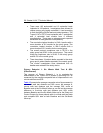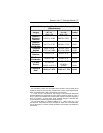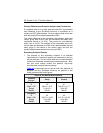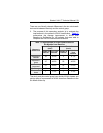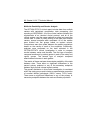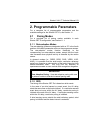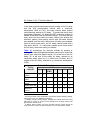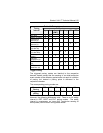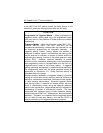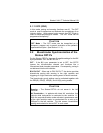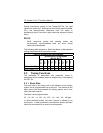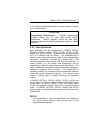
64 Stratos LV/LV-T Technical Manual
In the case of ventricular sensed events outside of the AV delay
and the VES discrimination interval after a ventricular
extrasystole (VES or PVC), the basic interval starts without
simultaneously starting an AV delay. To protect the atrium from
retrograde conduction, an extended PMT protection window is
started at the same time as the basic interval. If an atrial sensed
event does not occur within the basic interval (but outside the
refractory period), atrial pacing occurs after the basic interval
has elapsed, and the basic interval and AV delay are restarted.
Upon an atrial paced event, the AV safety interval starts with a
long basic interval. If a ventricular sensed event occurs within
the AV delay, ventricular pacing is inhibited.
Table 18
summarizes the intervals initiated by sensing or
pacing. The table distinguishes between two kinds of ventricular
sensed and ventricular paced events: VP at the end of the AV
delay; VP at the end of the safety AV delay, referred to as
ventricular safety pace (V
SP
); V
S
within the AV delay; and V
S
outside of the AV delay, referred to as “ventricular extrasystole”
(VES).
Table 18: Timing Intervals
Event Timing
Interval
Ap As As
(PMT)
Vp Vsp VS VES
Basic interval
(DDD)
*
X X
X
Basic interval
(DDI)
†
X
X X
Atrial refractory
period
‡
X X X
Upper basic rate
X X X X
Ventricular
Refractory
Period
X X X X
*
This timing interval is also applicable to the following modes: DDD(R), VDD(R),
AAI(R), DDT, VDT, AAT, DOO(R) and AOO(R)
†
In DDI(R), DVI(R), VVI(R), DVT(R), DDI/T(R) and V00(R) lower rate timing
starts with Vp, and/or Vs, and/or Vs event outside of the AV delay and the VES
discrimination window (VES).
‡
In DDI(R), DDI/T, VDD(R), and VDT, the atrial refractory period will also be
reset upon time-out of the VA-interval whether or not an atrial pulse is emitted.



